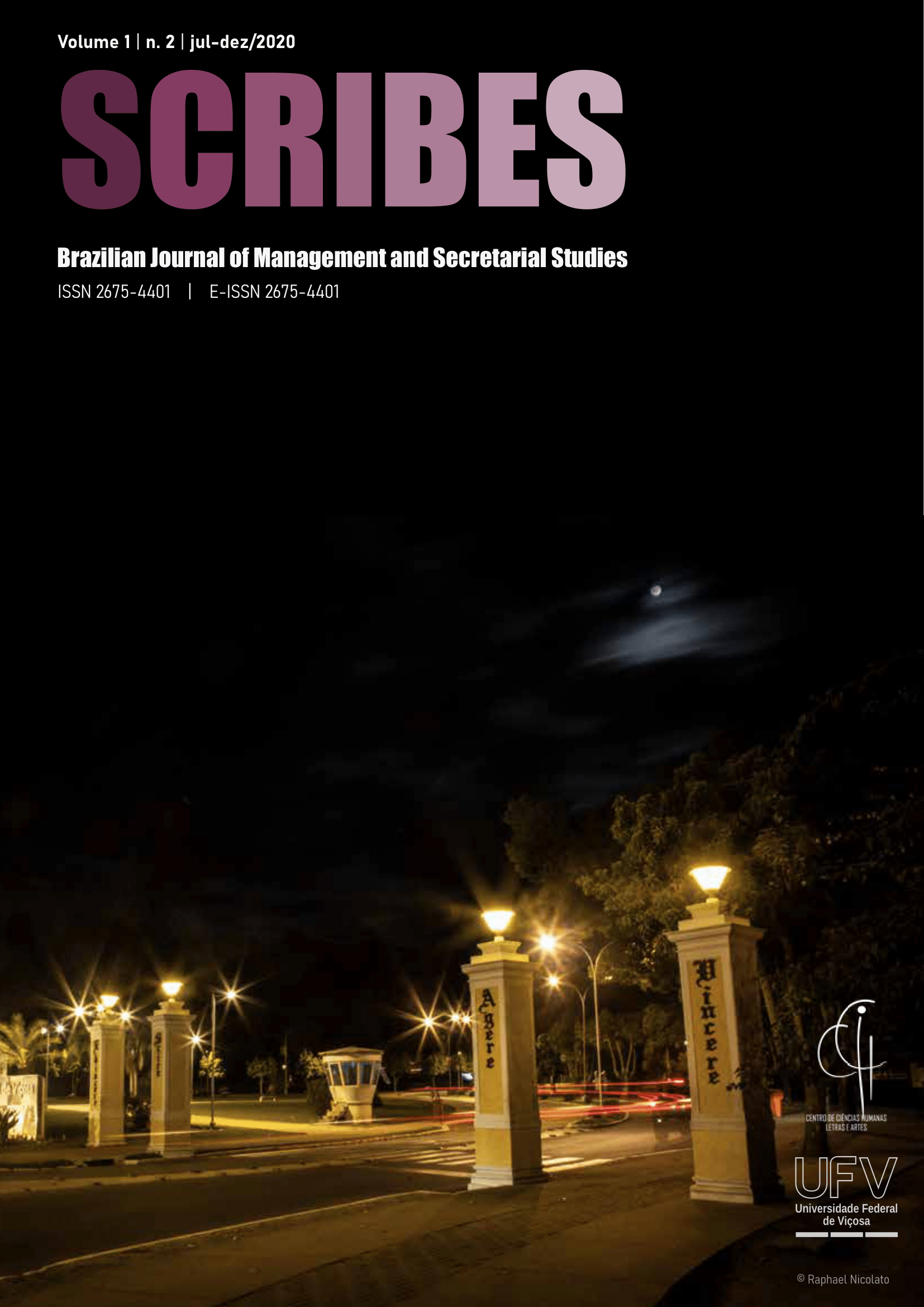The perception of secretarial science students in regard to academic events:
which ones do they attend and with what purpose?
DOI:
https://doi.org/10.33228/scribes.2020.v1.11397Abstract
This study has as its main objective to investigate the types of events that undergraduate students in Secretarial Science attend and the characteristics and themes of these events. To this end, a qualitative and descriptive research was carried out. Twenty-three undergraduate students from eight Brazilian higher education institutions in different regions answered the questionnaires and most of them consider very important to attend events from Secretarial Science as well as from related areas. The types of events most recently attended were: training events, workshops, research events and seminars. Regarding the topics of interest, three main areas stand out: administration, communication and health. The high demand for specific knowledge, the curriculum and the possibility of networking were highlighted as the purposes for participation in academic events.
Downloads
Downloads
Published
How to Cite
Issue
Section
License
Published authors agree on the following items:
a. Authors keep copyright ownership whilst ceding to SCRIBES the right to a first publication. The material is also simultaneously licensed under the Creative Commons Attribution-NonCommercial 3.0 Unported Licence, which allows its publication with mutual recognition of authorship and initial publication through SCRIBES.
b. Authors are authorised to engage in third-party contracts independently, as long as they are pursuing a non-exclusive publication of the article originally published in this journal, such as having it appended to an institutional repository or included in a book as a chapter. Authorship and original publication by SCRIBES must still be acknowledged.
c. Authors have permission to and are encouraged to publish their research online, such as in institutional repositories or in their own personal web pages. They are allowed to do that before or after the editorial process, once it inspires any opportunistic alterations to be considered during the aforementioned process, and increase the content’s impact and value as a quotable work (read more on The Effect of Free Access).




